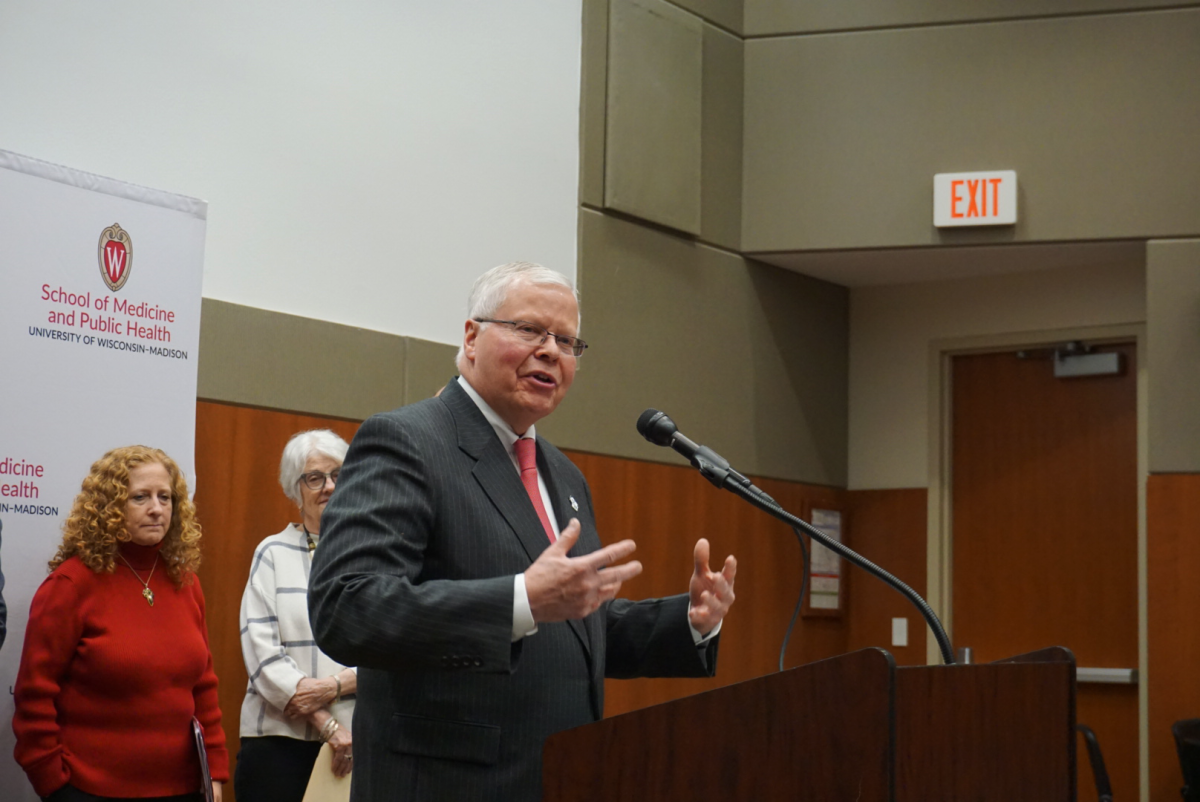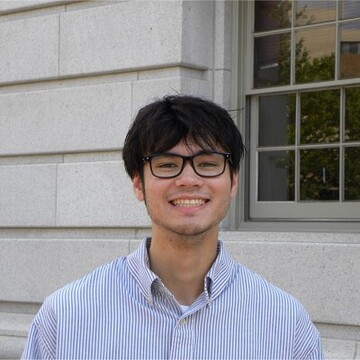Thursday afternoon, University of Wisconsin staff and various members of the scientific community gathered to address concerns of cuts in medical research funding from the National Institutes of Health.
The conference, held at the UW Health Sciences Learning Center, began with President of the Universities of Wisconsin System Jay Rothman addressing recent cuts to funding for indirect costs at facilities like the Wisconsin Registry for Alzheimer’s Prevention.
“Taking a meat cleaver to this [medical research] funding is simply wrong, short sighted and will cause harm to people across the state of Wisconsin and the country,” Rothman said.
Chancellor Jennifer Mnookin also spoke, emphasizing the importance research has on the economic standing of the state and country.
“This research fuels invention and discovery and fuels the economy here in Wisconsin and across the country,” Mnookin said.
UW is a leader in Alzheimer’s research, with WRAP run by professor of geriatrics and gerontology in the UW Department of Medicine Sterling Johnson.
Johnson, who is a member of Wisconsin Alzheimer’s Disease Research Center, explained the urgency for researching Alzheimer’s disease.
Currently Alzheimer’s affects 7 million people in the U.S., with around 120,000 people in the dementia phase of the disease living in Wisconsin, according to Johnson.
Alzheimer’s is ranked as the seventh leading cause of death and will continue to rise by 44% in 2040, Johnson said.
“It’s a testament to these NIH funded entities’ willingness to work together to create solutions faster so we can respond to the current public need of this disease,” Johnson said.
Johnson was joined by a longtime participant in WRAP, Sigrid Knuti, who gave her testimony for the need of continued NIH funding for research like WRAP.
Sigrid has participated in WRAP since 2005 and said she participates in the study due to her high risk factor of developing Alzheimer’s as a woman, as well as having a history of Alzheimer’s in her family.
“I don’t know if many of you have seen or met or know anyone who’s been in the last stages of Alzheimer’s, but I will tell you, it’s not very pretty,” Knuti said. “You don’t just lose your memory. Your brain is failing.”
Besides the economic and patient need for continued UW research in medicine, professors like UW-Milwaukee professor of psychology Karyn Frick worry about the impact cuts in funding could have on student opportunities.
Frick is concerned about labs like her own, with research designed to understand how estrogen regulates memory on the cellular level, in which students are given the opportunity to work in research as undergraduates.
“NIH funds my lab has received have been instrumental in training the next generation of scientists at the doctor level,” Frick said.
Other scientists like President of the Wisconsin Technology Council Tom Still and Chair of the Board of Directors at BioForward and CEO of Gilson Nicolas Paris discussed the impact cuts in NIH funding could have on the industry overall.
Both talked about the past success of UW innovations in the fields of medical sciences and the continued need to innovate.
“Now is not the time for America to weaken its competitive advantage … Yes, we are very proud of our tech hub and what is a tech hub without funding to innovate,” Paris said.




